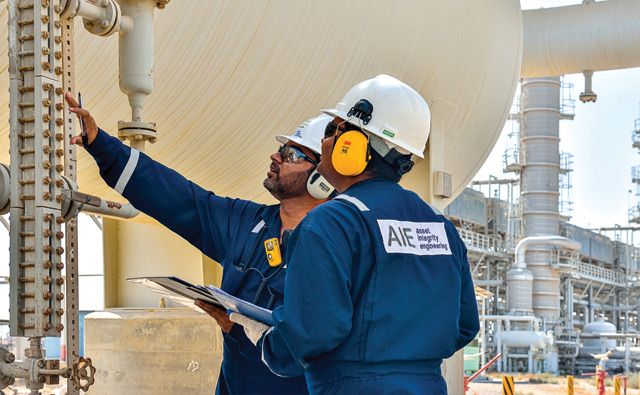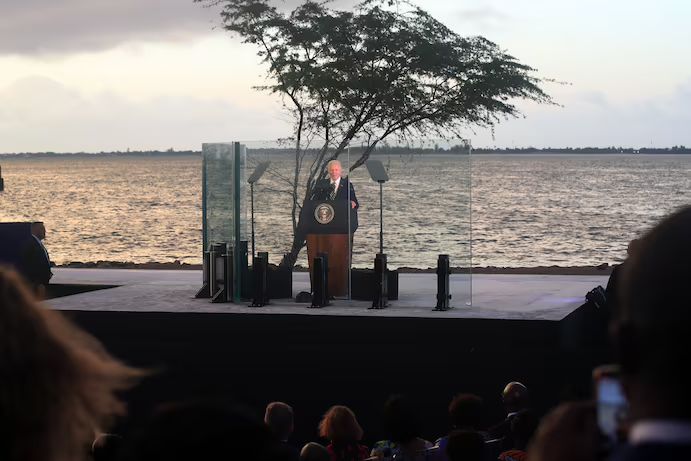Trump ramps up EU trade war threat unless bloc buys American oil and gas

Former U.S. President Donald Trump has reignited tensions between the United States and the European Union, threatening to escalate a trade war unless the EU significantly increases its purchases of American oil and gas. This new threat highlights the ongoing economic and geopolitical struggles between the U.S. and Europe, as Trump calls for European nations to rely more on American energy resources, particularly natural gas and oil, to reduce their dependency on Russia. The move comes amid rising global energy prices, the ongoing war in Ukraine, and ongoing discussions about energy security in Europe.
Trump’s remarks have stirred concern across the Atlantic, particularly among EU leaders, who have already been grappling with the economic fallout from the war in Ukraine and the subsequent energy crisis. Since Russia invaded Ukraine, Europe has sought to reduce its dependence on Russian energy supplies. The EU has imposed strict sanctions on Russian oil and gas, while simultaneously attempting to find alternative sources of energy to replace those once supplied by Moscow. This has opened the door for increased imports from countries like the U.S., which has ramped up its energy exports to Europe, particularly liquefied natural gas (LNG).
However, Trump’s recent statements put additional pressure on the EU, demanding that European nations buy more American oil and gas or face the threat of a renewed trade dispute. In his latest public comments, Trump emphasized that the U.S. could increase its energy exports to Europe significantly, but only if European nations meet specific purchasing targets. He has argued that doing so would help ensure that Europe remains aligned with the U.S. in the ongoing economic and political conflict with Russia.
The former president’s position reflects his “America First” approach to international trade, which prioritizes U.S. interests and demands that foreign markets adhere to American economic policies. Trump has long been a critic of international trade agreements that he perceives as unfavorable to the U.S. and has used tariffs and other measures to pressure foreign countries into compliance with U.S. economic interests. By threatening to withhold American energy supplies unless Europe increases its purchases, Trump is continuing this pattern, using economic leverage as a tool to further his political and economic objectives.
For the European Union, Trump’s demands come at a challenging time. The EU has already been working to diversify its energy imports, reducing reliance on Russian oil and gas, and increasing investments in renewable energy. While the EU has expanded its energy imports from the U.S., particularly LNG, the shift away from Russian energy supplies has been expensive and complicated. Energy prices in Europe have soared, and many European countries have struggled with the economic implications of transitioning away from Russian energy sources.
European leaders have expressed concerns about the potential impact of Trump’s latest threat, with some warning that it could disrupt the fragile economic recovery underway in Europe. The cost of American oil and gas, which is often more expensive than Russian supplies, has put a strain on European economies, especially in countries that are heavily reliant on energy imports. Many European nations have called for greater investment in renewable energy and energy efficiency to reduce their reliance on fossil fuels altogether, rather than increasing purchases of oil and gas from any single country, including the U.S.
Despite these concerns, Trump’s strategy reflects the growing competition for global energy markets. As European countries seek alternative energy suppliers in the wake of the war in Ukraine, the U.S. has emerged as a key player in the global energy market, especially in the field of LNG. American companies have significantly increased their production of LNG, positioning the U.S. as a major energy exporter to Europe and other regions. Trump’s push for Europe to buy more American oil and gas is seen as an effort to further cement U.S. dominance in the global energy market.
The Trump administration’s energy policies were also characterized by an emphasis on increasing domestic energy production, including oil, natural gas, and coal. Under his leadership, the U.S. became one of the world’s top oil producers, and Trump made it a priority to ensure that American energy companies could compete globally. His latest comments are in line with his previous rhetoric, which often emphasized the importance of U.S. energy independence and economic self-sufficiency.
On the other hand, European leaders have been working to balance energy security with environmental sustainability. The EU has committed to reducing its carbon emissions and transitioning to renewable energy sources as part of its Green Deal, which aims to make Europe the world’s first climate-neutral continent by 2050. Many European leaders are reluctant to become overly dependent on American fossil fuels, which could undermine their long-term climate goals. This adds another layer of complexity to the issue, as the EU must navigate the delicate balance between securing energy supplies and adhering to its environmental commitments.
Trump’s latest trade war threat is unlikely to lead to immediate changes in the EU’s energy policies, but it underscores the broader tensions in U.S.-EU relations, particularly in the context of the ongoing geopolitical struggle with Russia. The EU’s energy security needs and the U.S. ambition to increase its influence in global energy markets are at the heart of this ongoing conflict. As Europe continues to search for alternatives to Russian energy, the pressure from Trump to increase purchases of American oil and gas could play a role in shaping future energy dynamics between the U.S. and the EU.
In conclusion, Donald Trump’s renewed trade war threat, demanding that Europe buy more American oil and gas, highlights the ongoing tensions between the U.S. and the EU over energy policies and trade relations. While European nations face the challenge of balancing energy security with environmental goals, Trump’s stance reflects his broader “America First” approach to global trade. As Europe navigates these complex issues, Trump’s threats could further strain transatlantic relations, making it clear that the global energy market remains a critical battleground in the broader geopolitical landscape.






